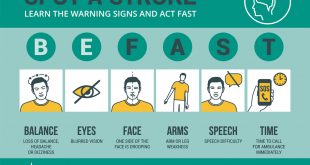

How would I get screened for heart disease?
During a checkup with your doctor, they will ask some questions and consider screenings and order bloodwork to assess your cardiovascular health. Your doctor will want to know about and routinely check for risk factors.
What types of symptoms should I mention to the doctor during my visit?
• Chest pain or discomfort
• Fluttering in your chest
• Slow or racing heartbeat
• Shortness of breath
• Dizziness
• Fatigue
• Swelling in your feet or abdomen
What are some specific tests I might need?
Manatee Diagnostic Center provides cardiac screenings to help patients identify potential heart problems and manage their heart health. By identifying potential issues early on, patients can work with their healthcare provider to adjust their lifestyle and improve their overall well-being.
CT Heart Score
A cardiac computed tomography (CT) Heart Score is a non-invasive imaging test to detect and measure the amount of calcium deposits in your coronary arteries. Coronary arteries are blood vessels that supply the heart with blood. When calcium is present, the higher the score, the higher the risk of heart disease. Scores range from 0-10.
If you are a male (ages 35 to 75) or a female (between 40 and 70) with any of the following risk factors, this test may provide valuable information about your heart health and identify heart disease in its early stages:
• Diabetes
• Family history of heart disease
• High blood pressure
• High cholesterol
• Overweight
A doctor’s order is needed for this screening. Talk with your doctor about your eligibility for screening. The self-pay price is $75.
Ultrasound Wellness Screening
An Ultrasound Wellness Screening is a non-invasive group of exams that take images of your internal arteries. The screening consists of the following tests:
• Carotid Artery Screen: Carotid arteries are found on each side of the neck and carry blood to the brain. The ultrasound is used to view the inside of the artery and detect plaque that could reduce or block bloodflow, which is the main cause of a stroke.
• Abdominal Aortic Aneurysm Screen (AAA): The aorta is the main artery that originates from the heart and runs through mid- abdomen, and an abdominal aortic aneurysm is an enlargement or aneurysm of the artery. Aortic aneurysms are extremely dangerous.
• Peripheral Arterial Disease Screen (PAD): An Ankle/Brachial Index (ABI) test screens for a buildup of plaque in the arteries. Blood pressure cuffs are placed on both upper arms and ankles for pressure readings.
If you have a family history of abdominal aortic aneurysms or are a current or former smoker, you should be screened. Asymptomatic participants can also be screened. The purpose of these images is to help provide early intervention and make changes if necessary to reduce risk of heart disease and other related conditions.
A doctor’s order is not required for this screening. The self-pay price is $149.
“Screening leads to early detection. Early detection saves lives,” said Kim Kulesza, MS, CNMT, Director of Clinical Operations at Manatee Diagnostic Center. “Whether you have a family history or are experiencing symptoms, time is of the essence, so see your doctor.”
Call Manatee Diagnostic Center at 941-747-3034 to receive more information or to schedule one of these screenings.
For more information about the Manatee Heart and Vascular Center, call 941-745-6874 or visit manateememorial.com/heart.
Physicians are on the medical staff of Manatee Memorial Hospital, but, with limited exceptions, are independent practitioners who are not employees or agents of Manatee Memorial Hospital. The hospital shall not be liable for actions or treatments provided by physicians. For language assistance, disability accommodations and the nondiscrimination notice, visit our website.
 Southwest Florida's Health and Wellness Magazine Health and Wellness Articles
Southwest Florida's Health and Wellness Magazine Health and Wellness Articles

